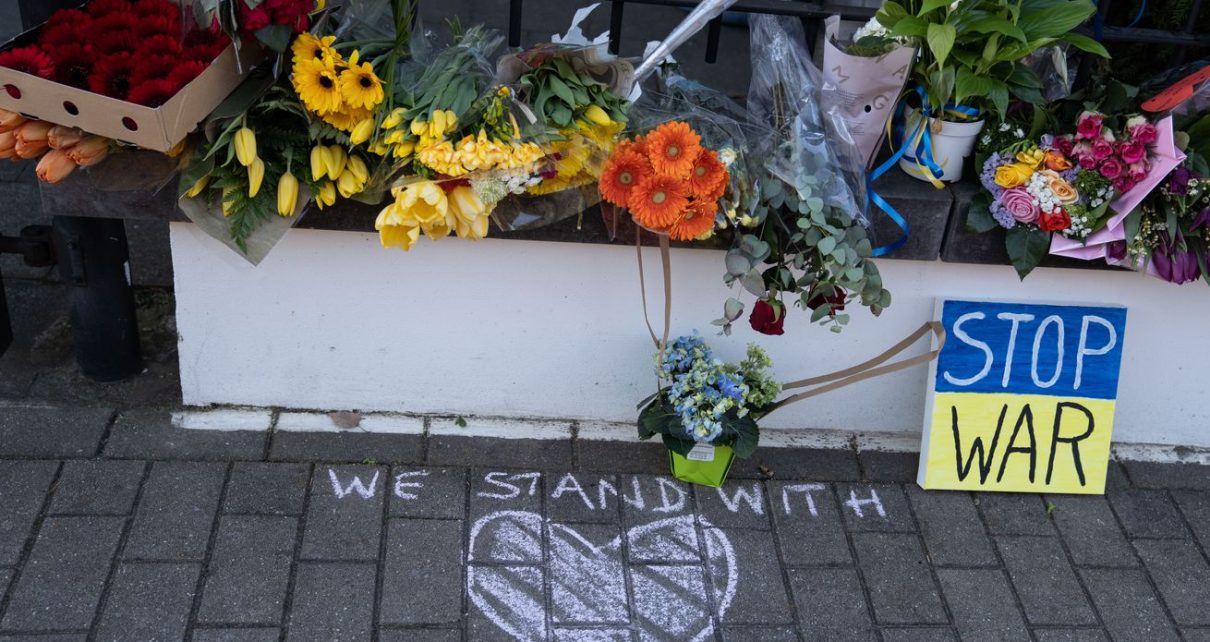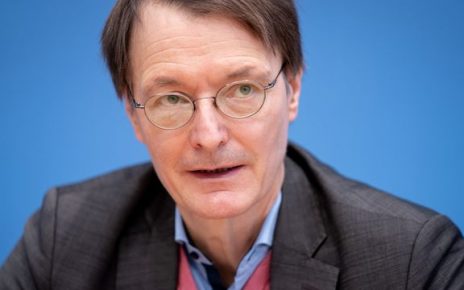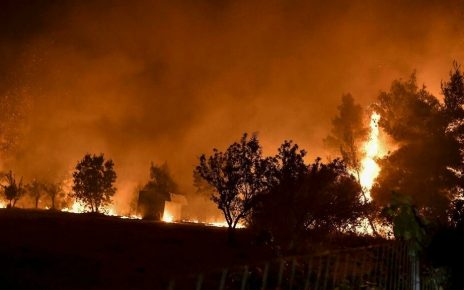
Peter Pomerantsev on whether Putin’s ability to manufacture reality may have reached its limits in Ukraine.
Russia invaded Ukraine last week and one of the recurring questions is: Why?
To the outside world, Russian President Vladimir Putin’s decision to launch an unprovoked and unnecessary war with the second-largest country in Europe doesn’t make a ton of strategic sense. It will likely be bloody, protracted, and ruinous to the Russian economy.
Putin, for his part, has told us what he’s thinking. He believes Ukraine is an illegitimate country and that its existence is an affront to Russia. This kind of rhetoric is typically embedded in a broader grievance narrative about Russia’s mistreatment on the global stage.
But how does all this look through the eyes of the average Russian citizen?
Ukraine does not want this war and has done nothing to incite it — but reality, in Russia, is unsettled. Putin controls state TV and when he pushes absurd narratives about Ukrainian aggression, it’s crucial to remember that he’s speaking to an audience that’s constantly bombarded with disinformation.
If you’re an average Russian citizen, the war may not look so unprovoked and unnecessary. You might believe that Ukraine is trying to exterminate the Russian population in its east, that the Ukrainian government is run by Nazis and drug addicts, or that Ukraine is working clandestinely with America to develop nuclear weapons. Or maybe you don’t believe any of that but aren’t quite sure what’s true.
This is a long-running strategy in Russia: Use the internet and state TV to flood society with propaganda, demonize the institutions charged with debunking that propaganda, and then exploit the confusion that results. It’s not airtight — some Russians see through the lies and there have been protests against the war. But on balance, the homefront information campaign has been successful for Putin, at least so far — in February, amid Russia’s military buildup along the Ukrainian border, he boasted a 71 percent approval rating among Russians.
A 2019 book by Peter Pomerantsev, called This is Not Propaganda, remains one of the best looks at how the information ecosystem in Russia works. Pomerantsev was born in Kyiv and he later worked as a reality TV producer in Russia and then a journalist — and now he’s a disinformation scholar at Johns Hopkins University.
I spoke with Pomerantsev for the latest episode of Vox Conversations, which we recorded last Friday as things were rapidly deteriorating in Ukraine. We discussed what was happening on the ground there, the role propaganda has played in justifying this war, and whether Putin’s ability to manufacture reality might come to an end.
Below is an excerpt, edited for length and clarity. As always, there’s much more in the full podcast, so subscribe to Vox Conversations on Apple Podcasts, Google Podcasts, Spotify, Stitcher, or wherever you listen to podcasts.
Sean Illing
First of all, I know you were born in Kyiv and probably still have people there, and honestly I’m not sure what else to say other than that I hope everyone is safe.
Peter Pomerantsev
Yeah, it’s difficult, and people are trying to get elderly relatives and children out. That’s the main thing right now. But most people are trying to stay. They don’t want to leave their country. And a lot of people I know, I wish they could leave because most of them are journalists or anti-corruption activists and they’ll be among the first people targeted if Putin takes over.
Sean Illing
There are a lot of ways to explain how we got to this point, but I want to talk to you about the role of propaganda. Your 2019 book was about this new way of managing reality in Russia and maybe we can start with you describing what’s new or different about it.
Peter Pomerantsev
Well, it’s an approach that’s constantly evolving, and Putin himself is constantly evolving. He used to work in this space of strategic ambiguity, where propaganda is very important and the goal is to confuse and dismay people, which is somewhat new.
But now he seems to be in a very different phase. If you just look at the videos of him, he’s gone full-on mad dictator and it’s all about taking action and using the propaganda to justify the deed.
But it’s very interesting that all the way up to the end, many people, even people in Ukraine, didn’t believe he would invade. Even though the American intelligence was so explicit about his plans, people were saying, “He’s not going to do it. No way.” But is that about confusion over propaganda, or is it more that people just couldn’t get their heads around the possibility of an invasion like this?
Sean Illing
It’s a good question. I guess I’m more interested in the role propaganda played (or didn’t play) in laying the groundwork for this war. Before he sent the troops in, he was spinning various narratives about Ukraine and Russia on state TV and elsewhere in order to justify his aggression. How was he able to sell it? Was he able to sell it at all?
Peter Pomerantsev
Inside Russia, which is what I think you’re asking about, they were pushing the idea that this is all NATO’s fault, that it’s the fault of the West, and I think that definitely worked. But even though I think a lot of people in Russia bought into that, I don’t think most of them wanted war. That’s the difference here. For all the propaganda, Putin hasn’t done a good job of justifying the war.
Sean Illing
Yeah, I think the last polling data I saw showed that Putin still has something like a 71 percent approval rating, which is high but maybe doesn’t tell the whole story here. And maybe “sell” is the wrong word. The case you make in your book is that the kind of propaganda that Russia does now isn’t designed to persuade people. It’s designed to confuse and disorient them so they’re not entirely sure what to believe and then eventually they just give themselves over to the strongman leader.
Peter Pomerantsev
That’s precisely what it is. But look, there’s deeper stuff than that. We definitely live in a confusing world full of nasty conspiracies and you need big, strong Putin to defend you — at least that’s what he’s selling. It’s not about liking him. It’s about this feeling that you need an autocrat in a world that’s so confusing, in a world where democracy is a charade. That’s his whole thing. It’s the sense that nowhere do people have agency and therefore you need an autocrat.
So that is a strategic message they’ve been pushing for decades really, a sort of cynicism that makes you dependent. But there’s something else going on now, which was always there but it’s much more pronounced now. It’s fascinating to see it so naked because it’s older in the sense that it’s sort of elemental. We usually associate it with fascist movements. It’s propaganda that revels in sadism and humiliation.
It was very obvious in Putin’s announcement of the war, during which he humiliated everybody in his cabinet, where he was like, “What do you think we need? I want your opinion, not mine.” And each one of them had to say like, “Oh, we want war. We want war.”
And one of them sort of flubbed his lines, and Putin started humiliating him very publicly. And they all looked terrified. It was a show of humiliation in a system that’s built on humiliation and a system that wants you, the citizen, to yearn for these leaders who are there to protect and hurt you at the same time, which is very much a Russian leadership concept, and very embedded in the language people would use around leadership.
Sean Illing
You can hear that language in the way Putin talks about Ukraine.
Peter Pomerantsev
Yeah, it’s full of aggression and also deeply misogynistic. Putin talks about Ukraine as either the mother of all Russian cities or a whore, a prostitute, that’s betrayed Russia. He makes casual rape jokes all the time about how he’s going to rape Ukraine.
Even as he talks about things like “spheres of influence,” which sounds like a geopolitical idea, if you look closely, it’s not very coherent. It can be all the way from the Atlantic to the Pacific, or everywhere where there’s a Russian speaker or the former empire. It’s always changing. It’s not like a security guarantee or something, which is rational. It sounds a lot like what the Germans meant by Lebensraum, which is more an imperial psychological feeling that stuff belongs to you and that you’ve been humiliated and aggrieved and need to take it back.
The propaganda has really become about that. The center of it is the grievance narrative. There’s a great line from Erich Fromm, the German psychoanalyst who looked at Nazi propaganda. He said that when the powerful have grievance narratives, that’s actually a way of them saying what they want to do to others. It’s a way of explaining what you are about to do to other people. It’s the psychological, pulsating nastiness of authoritarianism.
Sean Illing
Once you’re in that place, truth becomes an irrelevant category. It’s just naked power. Lying and getting away with it is certainly a display of power, but lying in a way that says: “Of course I’m lying, but it doesn’t matter and you can’t do anything about it anyway.” That’s the purest expression of power because it signals that a leader doesn’t even have to pretend to be accountable. They’re saying, “I’m beyond accountability, reality is accountable to me.”
Peter Pomerantsev
Yeah, it’s a very old thing, and Putin is definitely doing it. By saying I have power over reality, he’s saying I have true power. What was always interesting to me wasn’t just the part about power. It’s always about pleasure, too. People enjoyed sticking two fingers up to glum reality. There’s an energy that comes with that and I think it was part of Trump’s appeal as well.
But again, I think Putin is in a slightly different phase. All this stuff is still there, but the clever propagandists are on the edge of power now. You don’t need clever propaganda in a police state. The phase of Russia I was writing about in 2019 was a violent but still more playful kind of game, where Russia was at least trying to pretend they were playing by the rules of the global system.
That’s not where it is now. Russia is now domestically a police state and internationally an open empire. It’s not hiding anymore. And it’s revealing the raw psychological heart of fascism.
Sean Illing
So you really think the bullshit Putin is spinning about Ukraine has just become less important at this stage?
Peter Pomerantsev
At moments of panic, I think some people may still cling to this idea that Ukrainians are bad and that Russia is right, or that Ukrainians are coming to kill us. But you know, you can’t keep people in that space for very long.
Even going back to the great Hitler rallies, those effects wouldn’t last very long. Famously, people would just go home and go like, “Ah, what did I just do?” So it’s very hard to keep people hysterical.
Sean Illing
I know Putin remains fairly popular in Russia, but there are signs of some cracks here. People are protesting and it doesn’t seem like they’re buying this the way they may have bought some of Putin’s previous misadventures. It’s not even clear that the oligarchs who prop up Putin are all the way in on this one. Is it possible that Putin overplayed his hand here? Is it possible that the material realities on the ground finally catch up to him?
Peter Pomerantsev
I very much hope so, but for that to happen, we have to do real sanctions. [Editor’s note: New and tougher sanctions against Russia were announced by the US and other nations in recent days.] The sanctions have to be much, much, much stronger. So if we get there, if the sanctions really start to undermine Putin’s popularity, then we could see real cracks even among the elites and that could lead to a palace coup situation.
But we have to keep it up. We have to make clear that Putin is a challenge to the world, not just to Russia or not just to his neighbors. He’s a fundamental challenge to everything that democracy in Europe stands for or is meant to stand for. And we’ll have to make some real sacrifices to defeat that.
To hear the rest of the conversation, click here, and be sure to subscribe to Vox Conversations on Apple Podcasts, Google Podcasts, Spotify, Stitcher, or wherever you listen to podcasts.





